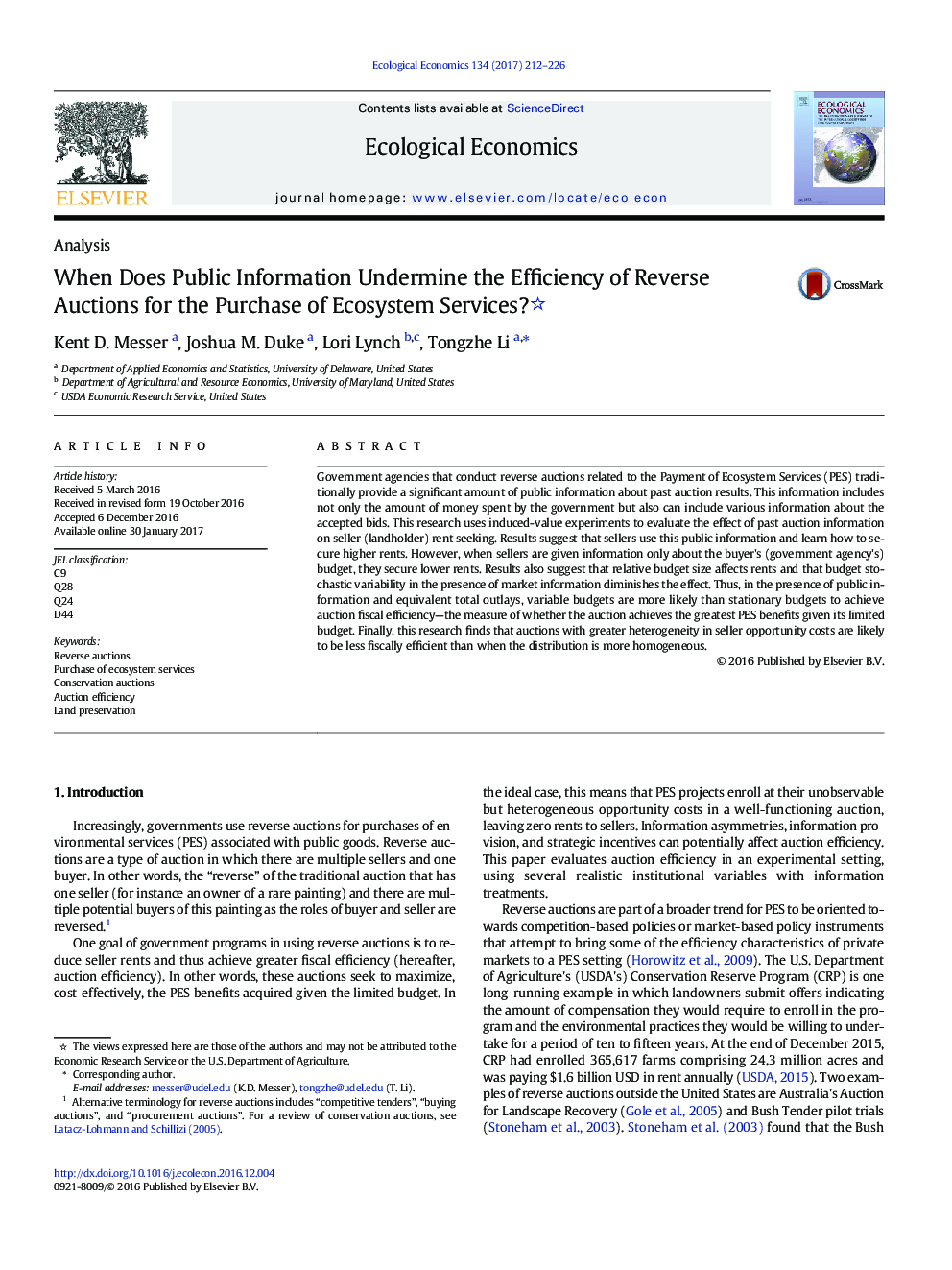| Article ID | Journal | Published Year | Pages | File Type |
|---|---|---|---|---|
| 5048693 | Ecological Economics | 2017 | 15 Pages |
Government agencies that conduct reverse auctions related to the Payment of Ecosystem Services (PES) traditionally provide a significant amount of public information about past auction results. This information includes not only the amount of money spent by the government but also can include various information about the accepted bids. This research uses induced-value experiments to evaluate the effect of past auction information on seller (landholder) rent seeking. Results suggest that sellers use this public information and learn how to secure higher rents. However, when sellers are given information only about the buyer's (government agency's) budget, they secure lower rents. Results also suggest that relative budget size affects rents and that budget stochastic variability in the presence of market information diminishes the effect. Thus, in the presence of public information and equivalent total outlays, variable budgets are more likely than stationary budgets to achieve auction fiscal efficiency-the measure of whether the auction achieves the greatest PES benefits given its limited budget. Finally, this research finds that auctions with greater heterogeneity in seller opportunity costs are likely to be less fiscally efficient than when the distribution is more homogeneous.
